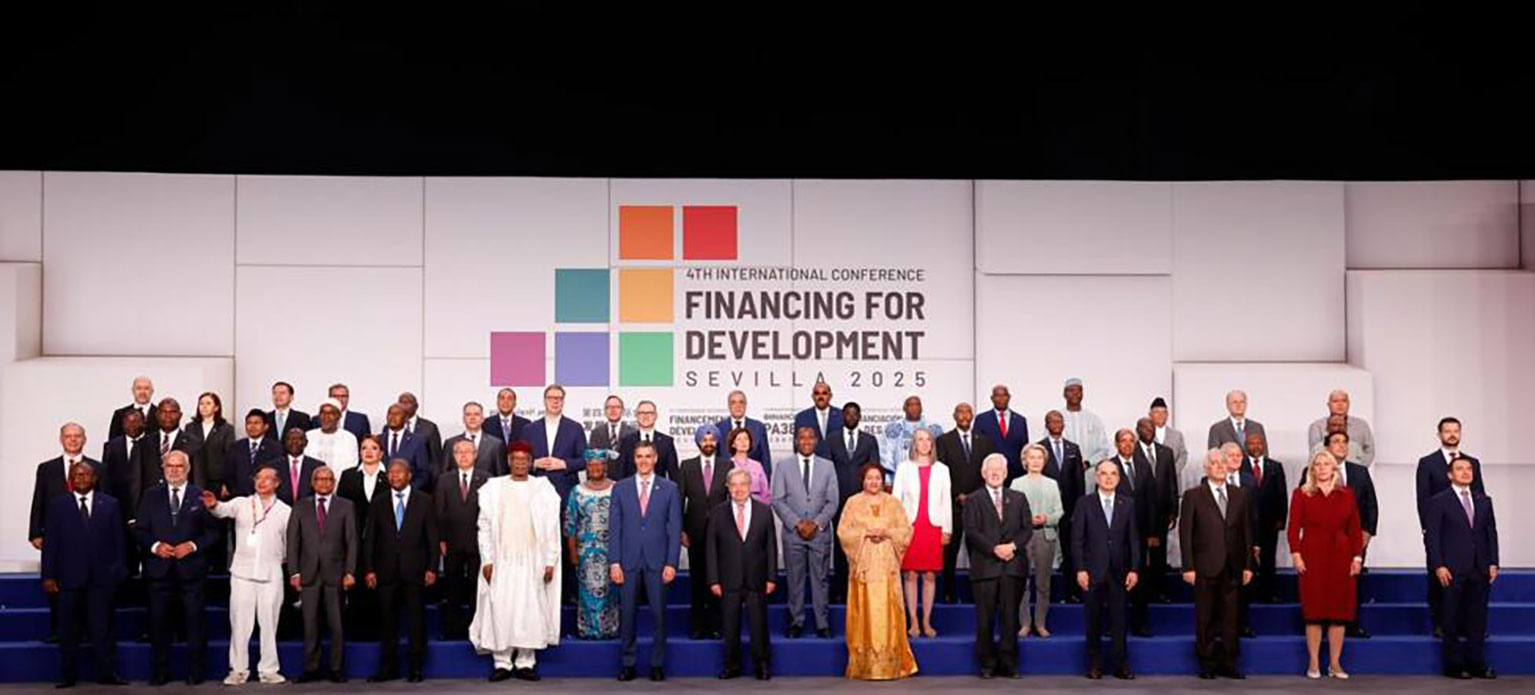The 4th International Conference on Financing for Development (FFD4), held from June 30 to July 3 in Seville, brought together representatives from over 150 countries with the goal of closing the annual financing gap — estimated at around $4 trillion — necessary to achieve the Sustainable Development Goals. During the event, the ‘Seville Commitment’ was adopted, a plan that includes 130 measures such as the creation of an Action Platform to promote tax reforms, sovereign debt restructuring, and levies on the aviation sector or large fortunes.
From the opening session, UN Secretary-General António Guterres warned that “finance is the engine of development — and it’s stalling,” stressing the urgency of strengthening multilateralism in the face of growing headwinds for international cooperation.
Spain’s Prime Minister Pedro Sánchez opened the summit by emphasizing the need to seize this opportunity to strengthen the global commitment to social justice, health, education, and the fight against climate change.
The social economy received explicit recognition in the final document. Promoted by the United Nations with strong support from the Spanish Confederation of Social Economy Enterprises (CEPES), the text highlights its strategic role in the implementation of sustainable policies and its contribution to fairer governance. For the first time, this sector is officially recognized as a key development actor.
Specifically, Point 21 of the ‘Seville Commitment’ reflects the explicit agreement of Member States to invest in productive sectors, create large-scale decent employment, and develop skills to ensure that everyone can benefit from inclusive, equitable and sustainable economic growth. It states: “We will promote entrepreneurship, including social entrepreneurship, particularly among women and youth, and facilitate the growth of micro, small and medium-sized enterprises, cooperatives and the social and solidarity economy, as well as inclusive and sustainable industrialization.”
In addition, the section related to the role of the private sector calls on countries to “encourage support for social and solidarity economy entities, including access to tailored financial and non-financial assistance from local, national and international financial institutions.”
A Still Limited Commitment
However, the ambition of the summit was somewhat overshadowed by the absence of the main donor, the United States, which declined to participate in the final agreement. While this absence made consensus easier, it also drew criticism from other donor countries.
NGOs described the text as insufficient, though they acknowledged it includes important measures. Civil society played a prominent role: more than 1,500 people participated in the Civil Society Forum, where demands such as fair taxation and cancellation of the Global South’s debt were emphasized.
Still, the Seville Summit represents a step forward in development financing, with the social economy emerging as a recognized and proactive force within the international framework.
Link to the official UN FfD4 page: https://financing.desa.un.org/ffd4







